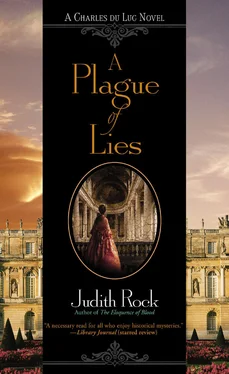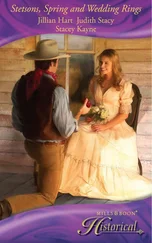Judith Rock - Plague of Lies
Здесь есть возможность читать онлайн «Judith Rock - Plague of Lies» весь текст электронной книги совершенно бесплатно (целиком полную версию без сокращений). В некоторых случаях можно слушать аудио, скачать через торрент в формате fb2 и присутствует краткое содержание. Жанр: Исторический детектив, на английском языке. Описание произведения, (предисловие) а так же отзывы посетителей доступны на портале библиотеки ЛибКат.
- Название:Plague of Lies
- Автор:
- Жанр:
- Год:неизвестен
- ISBN:нет данных
- Рейтинг книги:3 / 5. Голосов: 1
-
Избранное:Добавить в избранное
- Отзывы:
-
Ваша оценка:
- 60
- 1
- 2
- 3
- 4
- 5
Plague of Lies: краткое содержание, описание и аннотация
Предлагаем к чтению аннотацию, описание, краткое содержание или предисловие (зависит от того, что написал сам автор книги «Plague of Lies»). Если вы не нашли необходимую информацию о книге — напишите в комментариях, мы постараемся отыскать её.
Plague of Lies — читать онлайн бесплатно полную книгу (весь текст) целиком
Ниже представлен текст книги, разбитый по страницам. Система сохранения места последней прочитанной страницы, позволяет с удобством читать онлайн бесплатно книгу «Plague of Lies», без необходимости каждый раз заново искать на чём Вы остановились. Поставьте закладку, и сможете в любой момент перейти на страницу, на которой закончили чтение.
Интервал:
Закладка:
Snorts of laughter erupted along the benches, and Charles bit his lip to keep from laughing himself. Henri de Montmorency, the eighteen-year-old dull-witted scion of a noble house, turned on his bench and gaped at Bertamelli.
“You’re mad. Words can’t hurt anything!”
Charles called the class back to order, fixed Bertamelli with his eye, and schooled his face to stern disapproval. The boy’s scholar’s gown had slipped off one shoulder to reveal his crumpled and grayed linen shirt, and his huge black eyes were tragic with pleading. He was one of the most gifted and passionate dancers Charles had ever seen, but he was also proving nearly impossible to contain within Louis le Grand’s rules-and probably its walls, though Charles preferred not to think about that. He suspected that the little Italian would not be with them long, though who would crack first, Bertamelli or the Jesuits, he wouldn’t have cared to predict.
“To put Monsieur Montmorency’s puzzlement more politely,” Charles said, with a sideways frown at Montmorency, “how does Greek hurt your tongue, Monsieur Bertamelli?”
“That language has hard edges, sharp edges, cruel edges. It bites me! My tongue is a tender Italian tongue!” To be sure Charles understood, he stuck the sensitive member in question out as far as it would go.
“No need for scientific demonstration, Monsieur Bertamelli, and please pull your gown closed over your shirt. And if at all possible, compose yourself.”
Bertamelli yanked his gown onto his shoulder, pulled it straight, and clasped his thin brown hands together under his chin. His eyes grew even larger. “My tongue-”
“Let your tongue rest, monsieur , and make your ears work. Hear three things that I am going to tell you.” Charles held up his thumb. “Number one: Learning Greek will strengthen the sinews of your tender Italian tongue.” His first finger joined his thumb. “Two: Every educated man must learn Greek. We speak Latin here in the college because Latin is the international language of scholarship, but what the Romans wrote in Latin is rooted in what the Greeks wrote.” Charles’s third digit uncurled and his eyes swept the classroom and came to rest on Montmorency. “Three: And this is for each of you. You will observe the rules of classroom behavior. If you want to speak, put up your hand-as you all know very well. Now, Monsieur Bertamelli, sit down and prepare yourself for your Greek recitation.”
Bertamelli sat. Two tears spilled from his wounded black eyes and he wiped them with the edge of his gown, gazing at Charles like a martyr forgiving his tormentors. The room filled slowly with a quiet, dogged murmuring that Aristotle surely would not have recognized as his native language.
Charles left the lectern and opened one of the long windows, letting in a rush of the unseasonably cool air the storm had brought. The rain had stopped, leaving behind the music of water dripping from the blue slate roofs and splashing onto the courtyard gravel. Charles had come to the school from the south of France less than a year ago, but he’d quickly learned to love Louis le Grand’s sprawl of ill-matched buildings grouped around graveled courtyards. Some buildings were five stories of weather-blackened stone, the oldest were two stories and half-timbered, and a few were bright new brick with corners and windows trimmed in stone. All the roofs bristled with chimneys and towers. Some of the courtyards had shade trees and benches, two had gardens, one had an old well, and one boasted an ancient grapevine on a sunny wall. Rounded stone arches led to passages between the courts and from the enormous main courtyard, called the Cour d’honneur, out to the rue St. Jacques.
It was in the Cour d’honneur, outside the rhetoric classroom windows, that the outdoor stage for the summer ballet and tragedy was built each year. As Charles stood at the window, he began imagining scenery to go with the final section of his ballet livret . This year’s ballet was called La France Victorieuse sous Louis le Grand . The title, like the school’s name, was in honor of King Louis XIV. Charles knew that one reason for the trouble he was having with the livret was his dislike of Louis XIV’s passion for glory, which the ballet would so grandly praise. Charles especially deplored the king’s indifference to his people’s suffering under the draconian taxes that paid for the glory-bringing wars. And he particularly loathed the Most Christian King of France, as Louis styled himself, for outlawing and hunting France’s Protestants-called Huguenots-in God’s name. Part of his own family was Protestant, and he knew their suffering all too well.
But Holy Mother Church-the Catholic Church-had nurtured Charles all his life, and he loved her. He was certain that God was Love. Demanding, relentless, even terrifying Love, but Love nonetheless. Which meant that cruelty in God’s name was blasphemy. Which amounted to calling the king a blasphemer. Which was treason, pure and simple.
Even as Charles grappled with that thought, King Louis XIV himself stared blindly at him from the top of the Cour d’honneur’s north wall. The recently installed bust was a copy of one shattered by a storm-felled tree the year before, and Charles had developed a teeth-gritting dislike of those sightless eyes overseeing his daily comings and goings. He turned away from Louis and watched the dripping water dig a small pool in the gravel under the window. The tiny but deepening pool comforted him a little. Small persistent forces often won in the end. He had the sudden thought that maybe he could slip something into the ballet livret that didn’t praise Louis, some small piece of a different truth to raise disquiet in those with ears to hear… But even as he thought it, he knew it was impossible. Père Jouvancy would never let it pass. Of course he wouldn’t, it would be treason on the college stage , the cool-eyed critic in him said acidly. The king is the divinely anointed body of France. Kings preserve order. Order allows good to flourish. Charles shook his head. But whose good? he thought back at it. Not waiting for its predictable answer, he turned from the window to his work.
The ending bell finally rang. The students filed out and were met by a cubiculaire , a Jesuit scholastic who shepherded groups of boarding students to and from classes and saw that their chambers had sheets, candles, braziers, and the like.
As the cubiculaire chivied the boys toward their living quarters in the student courtyard, Charles went gratefully out into the watery late-afternoon sunshine. But before he was halfway across the court, someone called his name, and he looked back to see the college rector, Père Jacques Le Picart, the head of Louis le Grand.
Bowing, Charles greeted him, noting Le Picart’s muddy riding boots and spattered cloak. “You’ve had a wet ride, mon père .”
“Wet enough, maître . The storm caught me on the way back from Versailles.”
They walked together to the rear door of the main building where their rooms were, Le Picart asking Charles about his own afternoon and nodding in sympathy at his worry over the approaching rehearsals. But the rector seemed preoccupied, and before they reached the door, he said, “Have you visited Père Jouvancy today, maître ?”
Charles shook his head. “I’ve had no chance, mon père . But Père Montville told me as we were leaving the refectory after dinner that he’s much better and able to eat now.”
“Good.” The rector studied Charles for a moment in silence. “Will you come with me to the infirmary? I must speak with him. The matter may concern you, as well.”
“Of course, mon père .” Wondering uneasily what “the matter” was, Charles turned with Le Picart toward the infirmary court.
Читать дальшеИнтервал:
Закладка:
Похожие книги на «Plague of Lies»
Представляем Вашему вниманию похожие книги на «Plague of Lies» списком для выбора. Мы отобрали схожую по названию и смыслу литературу в надежде предоставить читателям больше вариантов отыскать новые, интересные, ещё непрочитанные произведения.
Обсуждение, отзывы о книге «Plague of Lies» и просто собственные мнения читателей. Оставьте ваши комментарии, напишите, что Вы думаете о произведении, его смысле или главных героях. Укажите что конкретно понравилось, а что нет, и почему Вы так считаете.












